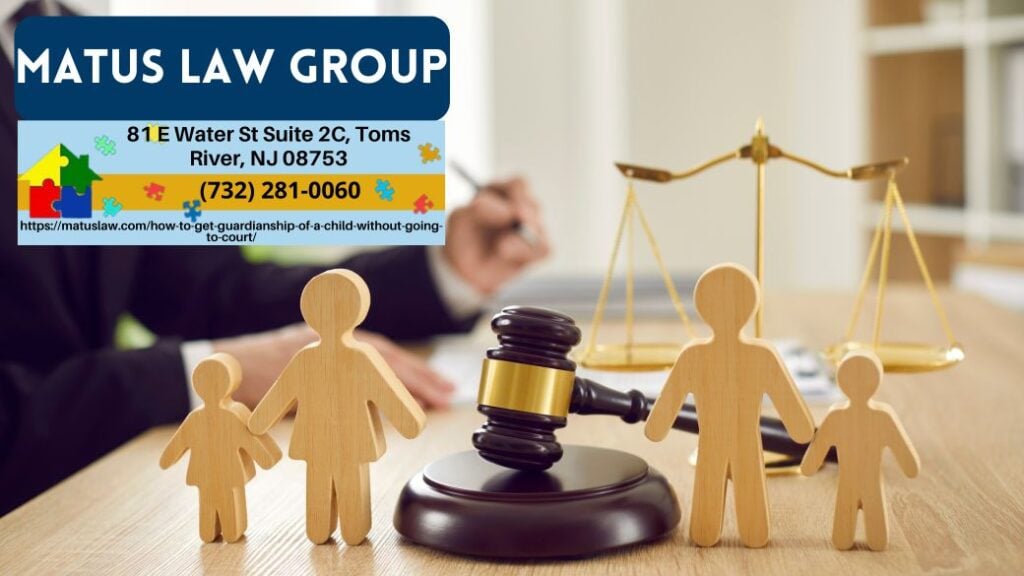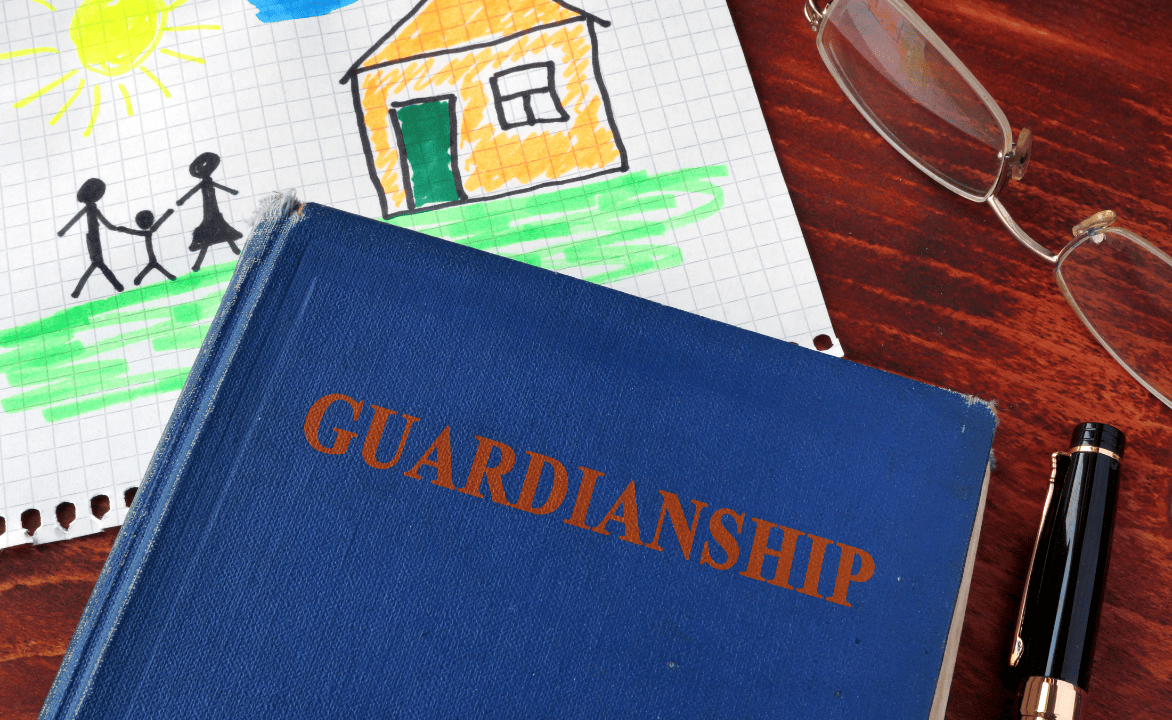Establishing guardianship for a child can be an important step in ensuring their care and well-being, especially when parents are unable to fulfill their responsibilities. While court involvement is often required for guardianship, there are situations where families may pursue alternative methods that do not involve legal proceedings. These options can provide flexibility and simplicity for those seeking to care for a child without going through formal court processes.
For families who want to avoid the complexities of the court system, understanding the available alternatives is key. These solutions can offer an easier way to establish guardianship in a variety of situations, providing peace of mind for both the guardian and the child.
If you’re considering guardianship for a child, consulting with a New Jersey guardianship attorney can help guide you through the process and ensure your arrangement is legally sound. The legal landscape surrounding guardianship can be complex, and having the right guidance can provide clarity and peace of mind. At The Matus Law Group, our team of New Jersey guardianship lawyers is available to assist you in exploring your options, offering personalized advice to avoid mistakes when naming a guardian for your child. Call (732) 281-0060 to schedule a consultation and find the right path for your guardianship arrangement while keeping the child’s best interests in mind.
What is Guardianship of a Child?
Guardianship of a child is a legal arrangement where an individual or an agency is appointed to act on behalf of a minor to ensure that their health, safety, and welfare needs are met. The guardian is responsible for making decisions about the child’s personal, medical, and educational needs, and they are obligated to protect the child’s rights. In New Jersey, guardianship is typically considered when the child’s parents are unable to fulfill their role due to incapacity, illness, or other significant challenges. Guardianship can be temporary or long-term, depending on the circumstances.
Guardians are required to involve the child in decision-making as much as possible, taking into account the child’s abilities and preferences. The role of a guardian is distinct from that of a parent, though in many cases it grants similar responsibilities, allowing the guardian to make informed decisions on behalf of the child.
When Guardianship is Necessary
Guardianship is necessary when a child’s parents are unable to provide adequate care due to circumstances such as illness, incapacity, or legal challenges. Here are key situations where guardianship may become essential:
Parental Incapacity Due to Physical or Mental Illness
When parents are physically or mentally incapacitated, they may not be able to make important decisions regarding their child’s health, education, or general well-being. In these situations, guardianship can provide a legal solution where another responsible adult steps in to ensure the child’s needs are met. This may be a temporary or long-term arrangement, depending on the extent of the parents’ condition.
Guardianship in Cases of Addiction or Incarceration
Addiction or incarceration can render parents unable to care for their children for extended periods. In these instances, guardianship becomes essential to protect the child’s best interests. A court-appointed guardian can make decisions that ensure the child receives the necessary care and stability during the parents’ absence or incapacitation due to legal or substance abuse issues.
Lack of an Available Parent or Legal Guardian
Sometimes, a child may not have an available parent or legal guardian due to death, abandonment, or other reasons. In these situations, the child’s safety and welfare may be at risk without someone to make critical decisions for them. Guardianship provides a way for a responsible adult to step in and take over these responsibilities to ensure the child’s needs are properly addressed.
| Situation | Description |
|---|---|
| Parental Incapacity Due to Physical or Mental Illness | When a parent is incapacitated due to illness, a guardian steps in to ensure the child’s health, education, and well-being are properly managed, either temporarily or long-term. |
| Addiction or Incarceration | Addiction or imprisonment can prevent parents from providing care, necessitating a guardian to make decisions and offer stability for the child during this period. |
| Lack of Available Parent or Legal Guardian | In cases of parental death, abandonment, or when no legal guardian is available, a court-appointed guardian ensures the child’s needs and welfare are met. |
How to Establish Guardianship with Parental Consent
In New Jersey, establishing guardianship through parental consent provides an efficient alternative to court intervention. This approach allows parents to designate a guardian for their child through a legally binding agreement, avoiding the complicated and time-consuming nature of formal guardianship proceedings. While this method is simpler, it is crucial to make sure that all legal steps are followed properly to protect both the guardian’s and the child’s rights.
Creating a Written Guardianship Agreement
A written guardianship agreement is the cornerstone of establishing guardianship through parental consent. This document should clearly outline the responsibilities and duties of the guardian, including aspects such as healthcare, education, and general welfare. In New Jersey, both parents typically need to sign the agreement, though exceptions exist if one parent is deceased, has had their rights terminated, or is otherwise unavailable. The agreement should specify the duration of the guardianship if it is meant to be temporary, such as a short-term guardianship, which is valid for up to six months. Properly drafting this agreement ensures that both parties understand the terms and minimizes the risk of disputes later on.
Notarizing and Validating Parental Consent
Once the guardianship agreement is drafted, it is important to have the document notarized to give it legal credibility. Notarization serves as a formal recognition that the signatures on the agreement are authentic and that the document was signed voluntarily. In New Jersey, notarization of the parental consent document helps protect the validity of the agreement, especially if there are any disputes in the future regarding the legitimacy of the guardianship. While notarization is not required in all guardianship cases, it is a crucial step in reinforcing the legal standing of the agreement and preventing future challenges.

How Power of Attorney Functions for Guardianship
A Power of Attorney allows a parent or guardian, known as the principal, to give legal authority to an agent (attorney-in-fact) to act on behalf of a child. This agent can be responsible for making decisions about the child’s healthcare, education, or even financial needs, depending on the scope of the POA. The POA document can specify that the agent’s authority is only valid under certain conditions, such as the principal’s temporary absence or incapacitation. A POA is often preferred for short-term guardianship situations because it does not transfer permanent legal rights, allowing parents to maintain their parental authority while delegating responsibility for a specified time.
Essential Elements of a Power of Attorney Agreement
For a Power of Attorney to be legally valid in New Jersey, it must contain several key elements that define the scope of the agent’s authority and ensure legal protection. These elements include:
- Identification of Parties: The POA must clearly state the names of both the principal (parent or legal guardian) and the agent (the person being granted authority).
- Scope of Authority: The document should specify the range of decisions the agent is authorized to make. This can include:
- Healthcare decisions (e.g., consenting to medical treatment)
- Educational matters (e.g., enrolling the child in school)
- Financial transactions (e.g., managing assets or handling funds)
- Duration of the Agreement: The POA must indicate whether it is temporary or permanent. A temporary POA, for example, can be limited to six months, which is useful in short-term situations.
- Durability Clause: The document must specify whether the POA remains valid if the principal becomes incapacitated. A durable POA ensures that the agent can continue to act even if the principal is unable to make decisions due to illness or other incapacitation.
- Notarization: To be legally enforceable, the POA must be signed and notarized. This adds legal credibility to the document and helps avoid disputes over its authenticity.
- Revocation Clause: The agreement should outline the conditions under which the POA can be revoked, allowing the principal to withdraw authority from the agent if necessary.
These essential elements ensure that the POA is comprehensive and legally enforceable, providing both the agent and the principal with clear guidance and protection in carrying out their roles.
When Power of Attorney is Preferred Over Full Guardianship
A Power of Attorney is often more appropriate than full guardianship when the arrangement is intended to be temporary or specific to certain tasks. For instance, parents may use a POA to appoint a relative or close family friend to manage their child’s affairs during a short absence, such as a medical emergency or travel abroad. A POA can also be tailored to specific circumstances, such as managing a child’s school enrollment or handling healthcare decisions, without granting full legal custody to the agent.
Unlike full guardianship, which requires court approval and potentially strips parents of their decision-making rights, a POA allows the parents to retain control. It also can be revoked at any time, offering more flexibility. Moreover, it is a less costly and time-consuming process compared to formal guardianship proceedings. Therefore, for families seeking a short-term or narrowly focused solution, a Power of Attorney is often the best option.
By utilizing a Power of Attorney, New Jersey parents can ensure that their child’s needs are met efficiently and legally, without the need for court involvement or the loss of parental rights. This approach provides the flexibility to address short-term needs while maintaining control over long-term decisions.
The Importance of Clear Communication in Guardianship Agreements
When pursuing guardianship without court involvement, open and clear communication between all parties is essential. Whether through a Power of Attorney or informal agreement, it’s important that everyone involved—the parents, the appointed guardian, and, where appropriate, the child—fully understands the terms of the guardianship arrangement. Defining the scope of the guardian’s responsibilities, the duration of the arrangement, and the conditions under which it can be terminated ensures that everyone is on the same page and reduces the risk of misunderstandings or disputes.
Effective communication also fosters trust, which is crucial when making decisions about the child’s welfare. Guardians and parents should have ongoing discussions about the child’s needs, the guardian’s role, and how any changes in the family situation might affect the arrangement. Additionally, any significant decisions, such as changes in education or medical care, should be openly discussed and agreed upon to maintain a cooperative relationship.
Having regular conversations also ensures that the arrangement can be adapted if circumstances change, such as if the parents’ situation improves or the child’s needs evolve over time. This collaborative approach helps to prevent future conflicts and ensures that the child continues to receive the best care possible, with everyone working together for their well-being. Clear communication ultimately contributes to the success of the guardianship arrangement, creating stability and security for the child.
Getting the Legal Help of The Matus Law Group for Guardianship Assistance
Deciding to take on the role of a guardian for a child is a significant responsibility, and finding the best way to establish guardianship without involving the court system can simplify the process for everyone involved. Whether you’re seeking temporary guardianship or exploring more permanent solutions, understanding your options is crucial.
At The Matus Law Group, we are committed to helping families find the right guardianship path that suits their needs. Our experienced New Jersey guardianship attorneys are ready to offer the legal support and guidance you need to move forward confidently. Contact us today at (732) 281-0060 to schedule a consultation and learn more about how we can assist you in protecting the child’s best interests.



